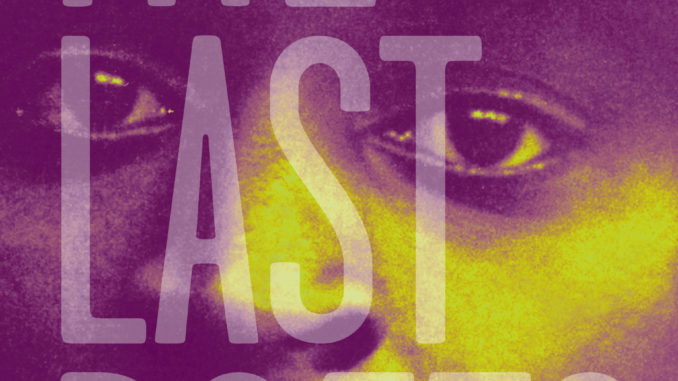
 Review Fix chats with “The Last Poets†writer Christine Otten, who details the creation of the book and why Hip Hop matters more now than ever before.
Review Fix chats with “The Last Poets†writer Christine Otten, who details the creation of the book and why Hip Hop matters more now than ever before.
About the Book:
The author Christine Otten is a blond, tall, white Dutch woman. When her teenage son introduced Christine to hip-hop, she took an unexpected interest in the band The Last Poets, its members male, black, at times impoverished and homeless – and traveled to the US to meet Umar, one of The Last Poets. When the two of them met, they felt in instant connection so deep, it cut right through their many differences. The meeting changed Christine’s life – she went on to spend three months traveling across the United States interviewing members of The Last Poets, their families, friends, and musicians and writing a novel based on their lives. She has given a TEDx Talk “About cultural appropriation and how to connect with each otherâ€, inspired by her deep and instant connection with Umar.
Review Fix: How was this book born?
Christine Otten: Through my then-eleven year old son who was a hip-hop fan. It was 2000. He showed me a documentary about the backgrounds of rap music. Umar Bin Hassan and Abiodun Oyewole, two of the Last Poets where in the film and talked about The Last Poets, poetry, music, and how they had been world famous with militant poetry. They also talked about their personal struggles in the 70’s/80’t involving drugs, violence and sex. Their poetry (and hip-hop) had saved them and they were performing again. I thought it was a good idea to interview them for a Dutch newspaper. When I met them in Harlem it was a life changing event. They were so open and honest about their lives and their stories were so extremely fascinating. The story of The Last Poets also reflects the recent history of (black) America. Plus: from the first meeting there was a strong personal connection. I instantly decided I would be crazy not writing a novel about these men.
Review Fix: What was your research process like?
Otten: Turbulent. It started a few days before 9/11. I clearly remember I decided to be tough and just go on with the research as planned. Of course I was in shock and everything went differently. Umar, who was supposed to come to New York to help me with the research, was not allowed to travel into the city. So I went to Detroit by Greyhound bus and Umar and I traveled to visit his sister, mother, best friend, children etc. For the book this was really good. I was actually in all the places that were important in Umar’s life. In Detroit I talked to David Nelson’s family and back in NY to Félipe Luciano’s and Abiodun’s families. Of course I had prepared this well. Coming from the Netherlands I had to engulf myself in African-American culture and history. I read everything I could get my hand on. Novels mainly: Toni Morrison, James Baldwin, Amiri Baraka, to name a few. And I immersed myself in the music, jazz, soul, hip-hop. The trips to America and being to close The Last Poets allowed me to get into the characters once I started to write. I felt like a fish swimming from one life to the next. That was truly liberating.
Review Fix: Why do these poets matter?
Otten: They are considered ‘The Godfathers of Hip-hop’ because of their musical form: poetry/spoken word with drum music. That was completely new at the time. They influenced generations of artists, not only hip-hop bands like Tribe Called Quest and Public Enemy but also David Bowie end Mick Jagger for instance. But their real impact in my view was their poetry and message. They shocked both a white and a black audience with poems like ‘Niggers are Scared of Revolution’, which is a personal poem by Umar about how we have to change within ourselves in order to change society and fight racism and other injustice. They were self-critical and militant; a great combination that made it possible to identify easily with them, no matter what color you are. They were always completely autonomous, both artistically and politically. Even today they are revolutionary. Their latest album Understanding What Black Is is very powerful. The title poem in fact says: Black is humanity. In the current harsh political and social climate with racial tensions running high, that is almost a revolutionary statement.
Â
Review Fix: How have they influenced you?
Otten: They have changed my life, as a person and as a writer. Their art and performance influenced my style of writing, which became more free and musical and lyrical. After spending months with these audacious artist I felt I could do anything with words. Also being completely immersed in the rich African-American literature and music and history had a big impact on my work and life. Most of all, the friendship with them, and the personal connection I felt with them, especially with Umar, had a big impact. We both had fathers who were mentally ill (because of their upbringing, the poverty, exclusion, racism in Umar’s fathers case). Umar and I recognized that in each other; how the experience had shaped us. How our fathers had subconsciously passed their feelings of shame and inferiority to us. In researching their lives, the good and the bad, I learned to understand more about my own background, my father, myself and my own demons. That was not what made me want to write this book but just happened in the process. I wanted to understand what racism does to the soul of a person, how self-hate is being transferred from parents to children, why a brilliant and loving man and poet like Umar could become a crack-junkie for some time and what gave him the power to come back? That where the underlying questions that started with identification and curiosity. I became a stronger person. Starting this journey I had to step out of my white ‘bubble’ and that brought me nothing but joy.
Â
Review Fix: Why is Hip Hop so important today?
Otten: Because it is a very democratic, accessible and free art form; it speaks to people of any social of ethnic background. If I speak for Europe, where I live, I think especially in these times of migration and changing populations, hip-hop gives people, young people mainly, a way of expression, of re-invention, a voice. In a way it is like jazz. You can re-invent yourself in that art form; be who you are and show it! Be out there; be yourself. In the words, the beats and the music. That’s why people rap in any language, all over the world. I know hip-hop is very commercial these days but it still is basically an art form that has a strong connection with the streets, with people in any part of the world, and that is what makes it so important.
Â
Review Fix: Who will enjoy this book the most?
Otten: Well, I think a lot of people will enjoy this book, not only people who are interested in hip-hop or music. The book is very intimate and personal. So if you are interested in life, love, history, being black in America, you will love the book. If you want to learn/read about human resilience and how to fight and overcome hardship, this book will touch you and give you power. I found that young and older people love this book alike. The recognize (parts of) themselves in the book because all aspects of life are touched; the book really allows the reader to identify with the characters and be in their worlds.
Â
Review Fix: Bottom line, why must someone read this?
Otten: ‘The Last Poets are the microcosm of Black America’, Umar once said, referring to the internal fights, drug abuse, violence and disappointments, as well as to the love, vigorous hope and power. Ultimately, is a this novel about human resilience and the sustaining power of beauty and art. It really does tell an important American history that has never been written about. The Last Poets deserve to be remembered, not only as icons, but as real humans. This book humanizes them, I guess. Bill Adler, former publicist of Def Jam records said about the book; ‘A tour de force of research and empathy. In effect, The Last Poets, is like the Autobiography of Malcolm X times nine.’
Review Fix: What’s next?
Otten: I am writing a novel set in a prison. It’s based on my experiences teaching creative writing in a Dutch prison. The beautiful thing is that I recently got letters from some prisoners in the US (Texas) who read The Last Poets and love it. Especially the way the book ‘takes the toughness of life and transfers it into beauty’, as one prisoner puts it. So I guess I am in the right place now. Ultimately this new novel will also be about what it means to be alive.


Leave a Reply